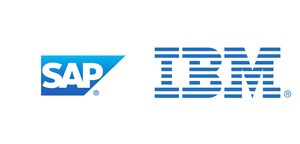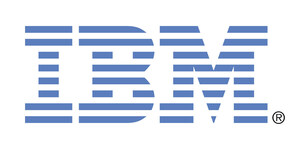IBM Launches Multizone Region in Brazil as Clients in Latin America Adopt Hybrid Cloud
- Expanded global cloud footprint highlights continued investment in a security-rich cloud infrastructure with confidential computing capabilities
- Prepares clients for a sustainable future with plans for reduced carbon footprint from cloud workloads and data centers
- Clients including Arezzo&Co, Stone and Digisystem can leverage IBM Cloud to help protect mission-critical data
ARMONK, N.Y., March 18, 2021 /PRNewswire/ -- IBM (NYSE: IBM) today announced the opening of its first IBM Cloud Multizone Region (MZR) in Latin America, an important expansion of its global cloud presence in major markets. Building on its existing data center footprint in Brazil, the MZR is a result of the company's continued investment in cloud infrastructure to accelerate hybrid cloud adoption and help foster business growth in Latin America. Following the openings of Toronto and Osaka last year, the latest MZR in Brazil marks IBM's ongoing commitment to help clients across the globe deploy mission-critical workloads with high levels of security and resilience, while helping to address data sovereignty requirements and prepare for a sustainable future.
Clients will gain access to cloud security with IBM industry-leading confidential computing
IBM Cloud's network is designed for low latency and high security, all while helping clients meet their data sovereignty and compliance regulations – a critical requirement for clients in highly regulated industries like financial services, government, telecommunications and more. By hosting workloads on IBM Cloud – the industry's most secure and open public cloud for business – clients will be able to use IBM Cloud's confidential computing capabilities delivered with IBM Hyper Protect Crypto Services and backed by the highest level of security certification commercially available.1
This can allow businesses to retain control of their own encryption keys, meaning clients are the only ones who can control access to their data, not even IBM can access it. Additionally, IBM MZRs include a catalog of PaaS services, as well as Red Hat OpenShift on IBM Cloud and IBM Cloud Satellite, to help clients implement architecture and mission-critical applications in hybrid cloud environments.
IBM Cloud MZRs are composed of three or more data center zones with each being an Availability Zone. This is designed so that a single failure event can affect only a single data center rather than all zones – allowing for consistent cloud services and greater resiliency. Clients hosting workloads on IBM Cloud MZRs in any country can continuously run mission-critical workloads to keep business up and running.
Accelerating hybrid cloud across industries to manage mission-critical workloads
A hybrid cloud approach has been helping businesses from different industries across the globe address fast growing challenges in service and product demands. As Brazilian companies turn to IBM Cloud, they can leverage its security capabilities and IBM's deep industry knowledge:
- Arezzo&Co, leader in the footwear, bags and female accessories segment in Latin America, has chosen IBM Cloud to help offer a secure, faster shopping experience in any sales channel for its nearly 10 million customers. By working with IBM to adopt a hybrid cloud approach and migrate mission-critical applications to IBM Cloud, Arezzo&Co has been able to modernize key workloads including sales processes and inventory control. As a result, the company has created a more agile and flexible omnichannel strategy, while prioritizing security to run complex workloads and deliver enhanced customer experiences.
- Stone, a Brazilian fintech that offers financial solutions for more than 650,000 small and medium entrepreneurs, has selected IBM Cloud to move part of its workloads to cloud. Operating in the local market since 2012, Stone recently chose IBM Cloud due to the flexibility and security.
- Digisystem, a Brazilian company with more than 30 years of experience helping businesses in their digital transformation journeys by providing technology solutions, has migrated many of its solutions to IBM Cloud. By adopting a hybrid cloud approach, Digisystem benefits from enhanced performance, more redundancy, and increased flexibility in the operational systems and in the size of the servers. Furthermore, the migration generated a cost reduction. The new hybrid infrastructure has enabled the IT team to have more autonomy and control over the environments.
Building a sustainable future by preparing to minimize carbon footprint from data centers
As IBM continues to help businesses scale and protect critical data through its expanded global cloud footprint, it is also helping prepare for a sustainable future. Building on its decades-long work to address the global climate crisis, IBM recently announced its commitment to achieving net zero greenhouse gas emissions by 2030. Utilizing a combination of artificial intelligence, hybrid cloud capabilities and quantum computing, IBM is working with clients and partners to address complex climate-related issues, such as the growing global carbon footprint of cloud workloads and data centers. This is not only critical for the environment, but will also help IBM clients address their own sustainability initiatives as companies across the globe look to minimize their carbon emissions.
"As companies embrace digital transformation, IBM is continuing to invest in cloud infrastructure and hybrid cloud capabilities that will help businesses around the world modernize and drive sustainable growth and innovation," said Harish Grama, General Manager, IBM Cloud. "Following the openings of Toronto and Osaka MZRs just last year, IBM's expanded presence in Brazil is designed to deliver our clients high levels of security and reliability, so they can advance in their journey to cloud – all in a way that supports sustainability goals while thriving in a digital era advancing to the future."
CONTACT:
IBM Communications
Kate Gazzillo
[email protected]
1 Based on IBM Hyper Protect Crypto Service, the only service in the industry built on FIPS 140-2 Level 4-certified hardware. FIPS 140-2 Security Level 4 provides the highest level of security defined in this standard. At this security level, the physical security mechanisms provide a comprehensive envelope of protection around the cryptographic module with the intent of detecting and responding to all unauthorized attempts at physical access.
SOURCE IBM

Related Links
WANT YOUR COMPANY'S NEWS FEATURED ON PRNEWSWIRE.COM?
Newsrooms &
Influencers
Digital Media
Outlets
Journalists
Opted In





Share this article